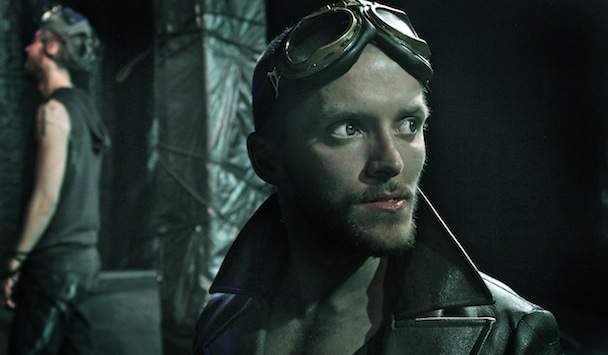Titus Andronicus
Major trigger warnings for the Shakespeare play that reads most like an Odd Future track.
Overview
Titus Andronicus is, as this performance's director Kate Revz points out, "gods and monsters" stuff, the kind of thing you have to step up to. Classical in its unabashed gross-outs as well as setting, a fictionalised imperial Rome, this is an elemental play with a plot that plays out in a series of horrifying events the logic of which is put brutally before the audience. The play operates with regard to invention and internal consistency rather than to relatability or immersivity: it is firmly in the realm of the spectacular.
But here we are in the 21st century, and Cry Havoc's aim is "the pursuit of fearless interpretation, collaboration and re-birth of canonical texts of the human experience," so things here are played a lot more specifically pitiable than they would have been for audiences more used to allegory. And the playing is rather great. The actors are clearly all very, very comfortable with the text there's not any of that awkward 'here is my Shakespeare voice' that detracts from so many performances of his plays, and the physicality of the individual characters and of the ensemble scenes communicates mood very clearly. The audience was laughing where they were supposed to, wincing where they were meant to and generally thoroughly caught up in what was going on.
I had some doubts about where and how some of these atmospheres were created and reactions provoked, though. There seemed to be a lack of justification for why some of the horrors were played straight and others camped up to the max, for one thing. Also, the viscerality of some of the violence, the abstraction of the choreographed interstitial scenes and the thematic flinging and daubing of brightly coloured powder going on at decisive moments did not really do one another any favours.
This is an interesting attempt at a difficult play. Cry Havoc have made an admirable effort to produce theatre with contemporary relevance that doesn't get stuck at the kitchen sink and that does classical without presuming scholarship. In the end, though, it pushes both the ultraviolence of the ancients and the contemporary relevance that has in terms of family and war a little too hard, and the audience ends up sold a little bit short.





